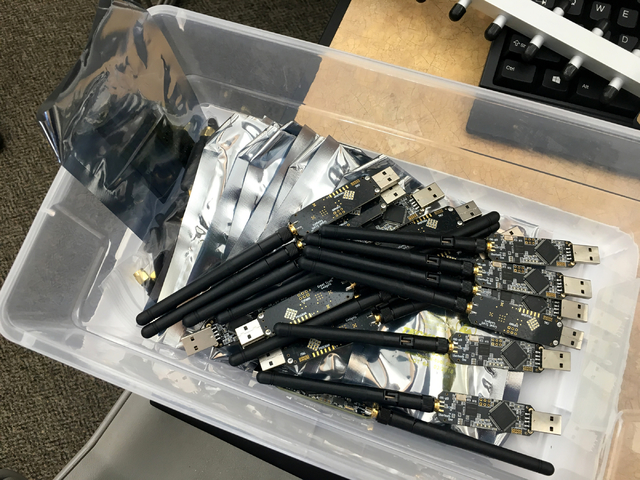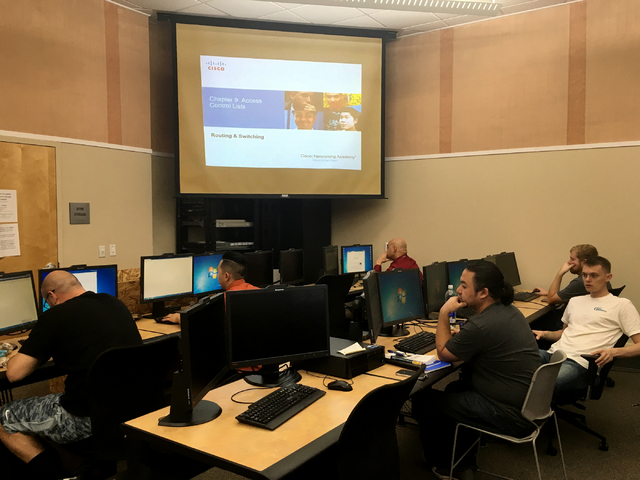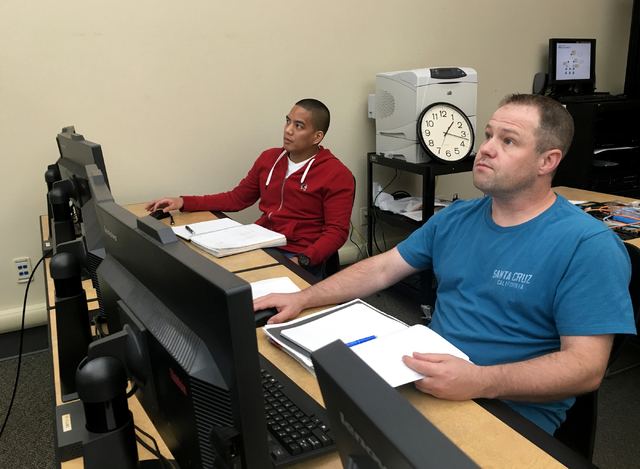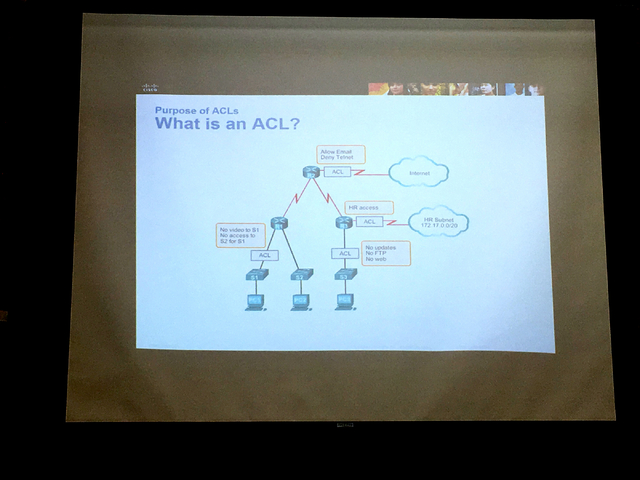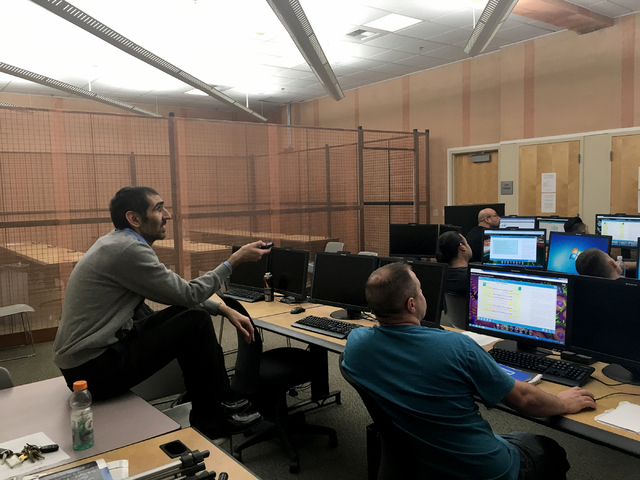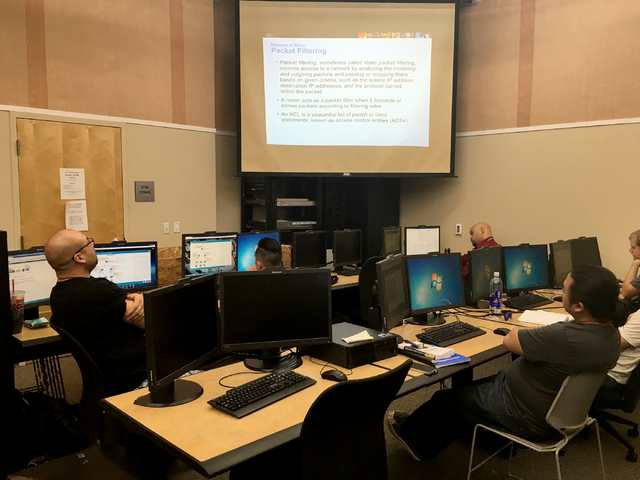College of Southern Nevada’s elevates its cybersecurity program
Recent headlines about email hacking and data security breaches show the desperate need that exists for cybersecurity professionals.
That explains why College of Southern Nevada is aiming to fill the gap by becoming the primary local training ground for the fast-growing and lucrative career.
“Particularly when you look at some of the data coming from places like Homeland Security, as well as the private sector, we’re seeing employment potential as significant,” said Dr. Michael Spangler, dean of the college’s School of Advanced &Applied Technologies. “I think (the sector) is going to be a major player here in Las Vegas.”
According to the Bureau of Labor Statistics, employment of information security analysts is projected to grow 18 percent from 2014 to 2024, much faster than the average for all occupations. It projects demand for such professionals will be “very high” as cyberattacks increase in frequency, requiring innovative solutions to prevent hackers from stealing critical information or taking down computer networks.
Citing the Las Vegas Convention and Visitors Authority’s goal of attracting 45 million visitors annually in the next few years, Spangler said local demand for cybersecurity experts also will soar.
“Las Vegas is a major data center hub, with employers like Switch,” he said. “That data security requirement is just going to get amplified. … And all of those people coming into town are going to have to have protection (such as secure computer networks). And that’s what this program is to do — help build the talent to help build the protection.”
STATE-OF-THE-ART
To further its goal of becoming a leader in cybersecurity education, the college has received nearly $150,000 from the Governor’s Office of Science, Innovation and Technology. That money is being used to create a state-of-the-art lab outfitted with computers, cameras, Wi-Fi equipment and an already-completed Faraday cage — a metal enclosure designed to prevent wireless signals used for practice hacking in the classroom from escaping into the outside world.
CSN says the new lab, which officially opened on Dec. 20, will enable the program to increase enrollment by 30 percent.
Brian Mitchell, director of the governor’s technology office, said the CSN program already is a leader among Nevada’s education providers.
“It’s a fantastic program,” said he said. “It’s the premier program in Southern Nevada for training cybersecurity professionals.”
Spangler and CSN Professor Arthur Salmon agreed. In the original grant, the college asked only for a single small station, but, OSIT recognized that the need was much greater.
“This is part of the governor’s huge push of recognizing where there are jobs, and he recognized that cybersecurity is an area that (Nevada is) really weak in,” Salmon said.
CSN student Michael McLafferty said the school’s focus on cybersecurity already has had a “life-changing” impact for him. He said that after taking a course in ethical hacking — the process of hacking into a computer network to test its security without malicious intent — he and a fellow student promptly founded a startup business.
“It led to pathways of success that we never thought were there before,” McLafferty said. “We started off with a focus in networking, programming … and then we discovered cybersecurity, and all the tools that go with it. It opened up so many doors of opportunity for us.”
He said tools such as the Faraday cage helped him hone his skills rather than just absorbing theory from a book.
“We were … physically interacting daily — sharpening our skills rather than reading a book and memorizing answers for a certification,” he said.
SIGNIFICANT STARTING WAGES
The program will soon feature two new associate degrees in cybersecurity, with one program beginning in fall 2017 and focused on compliance, according to Margaret Taylor, chair of Computing and Information Technology at CSN. The other degree’s name is still to be determined, projected to begin in fall 2018. New courses include ethical hacking, physical security, incident handling, advanced network security and penetration testing. The college is currently offering associate degrees of applied science in network security and digital forensics, as well as a certificate of achievement in digital forensics.
Students can expect a starting wage between $45,000 and $55,000 per year growing with experience and additional training to the mean industry wage of $84,620.
“It’s significantly more than most other starting wages,” Mitchell said. “Cybersecurity professionals are needed in all types of businesses.”
And in Las Vegas, they’re especially needed in the gaming industry.
“They (casinos) don’t have enough qualified people, whether it be compliance checking, auditing, penetration testing — cybersecurity in general,” Salmon said.
The department has been working in partnership with the Sands Security Group to funnel students into paid internships over the summer.
“Not only do we get the theoretical and hands-on learning, but they get the potential to get a job after the fact,” Salmon said.
Spangler said not every school has the wherewithal to develop a program like CSN has.
“The kind of funding and the kind of equipment needed for this isn’t necessarily easy to come by,” he said.
Salmon expressed similar sentiments. He said it can be difficult for educators to keep up with the ever-evolving cybersecurity field, but he’s committed to helping the staff succeed.
“When you have professionals who are teaching these courses, it takes a lot of energy, a lot of time and a lot of effort to stay current,” he said. “It is not normally an area people want to get involved with because it takes so much time just to stay current with it.”
The Review-Journal is owned by the family of Las Vegas Sands Corp. Chairman and CEO Sheldon Adelson.
Contact Natalie Bruzda at nbruzda@reviewjournal.com or 702-477-3897. Follow @NatalieBruzda on Twitter.




